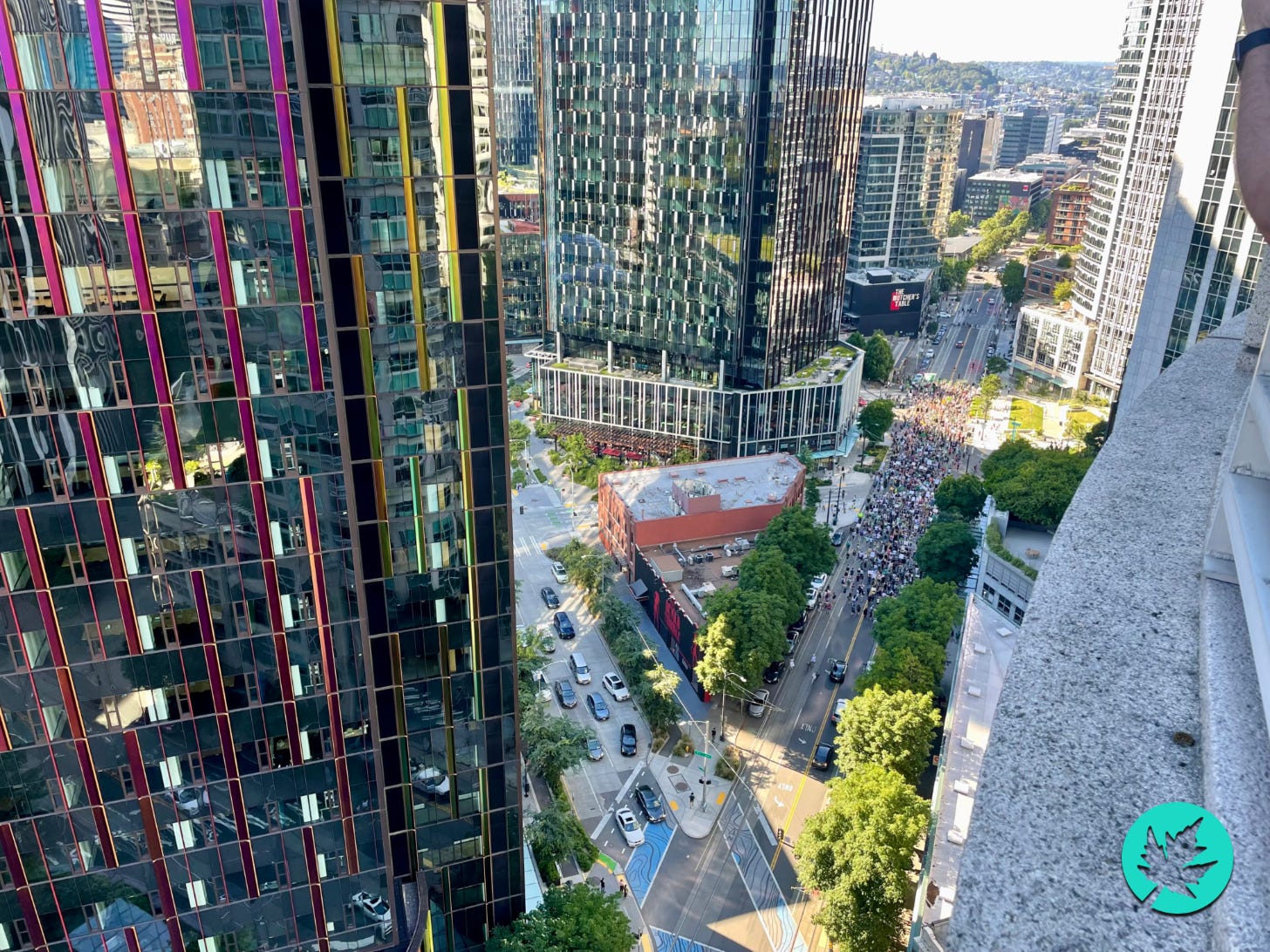Let Authenticity Drive the Bus
about these email-based musings
This newsletter has moved!
To receive new and infrequent musings, the latest fiction and non-fiction narratives, updates, and "life nuggets”, subscribe here.
I have various interests, passions, and desires. We all do, I’m sure. And this time around, I’ve chosen to not focus on one theme or niche with my writing.
I’ve worked several different jobs since I was 13 years old.
I've been:
a restaurant busser (my first job! “Under-the-table” at 13, working for a fellow softball player’s parents’ business for a couple of summers)
a customer service rep
an office assistant
an office manager
Vice President of a small company
a traveling sales associate
an opera singer
a downsizing contractor / a “down-sizer” (a subcontractor helping companies close or downsize with minimal fallout. Sounds terrible, but mostly I helped laid-off employees find new employment)
a brief stint in insurance
a ghostwriter
a restaurant server
briefly a stay-at-home mom
a Mary Kay consultant (learned a lot, at least…)
a graphic designer
a website designer/front-end web developer
a blogger
an entrepreneur business consultant and online strategist
and a freelance writer
And I’ve seemingly been even a slightly different person with each job and with each stage of life.
Within the past few years, I realized I’d only ever made professional decisions based on what other people said I was good at, or because of something others wanted or needed from me.
Marketing experts will tell you that’s the key to professional success: find people’s pain points and sell them a solution. But after at least 8 major Autistic burnouts1 (not including health downtimes), I can tell you that this method of "professional success" isn't for everyone.
Or, maybe just not for every neurotype.
I can hear my old Mary Kay network of uplines at their rented meeting space in Sarasota, Florida. They'd constantly say in one way or another that we have to push ourselves beyond our comfort zones.
“When we’re comfortable, we’re stagnant.”
I disagree, to a point.
When I’m comfortable, I have the capacity to work and grow. When I’m uncomfortable, I’m more likely to experience mental paralysis,2 leaving me stagnant, and with increased executive dysfunction.3
After a slew of health issues and, later, diagnoses; most doctors blamed my predicament on me being fat. Only after we moved to Seattle in 2018 was my body finally acknowledged as a symptom and not the problem.
I was diagnosed with ADHD in 2019. During the COVID-19 lockdowns of 2020, we discovered that our household members are all Autistic. And in early 2022, myself and my three children were officially diagnosed. My husband, Brian, self-identifies as Autistic (perfectly valid), and as it namely affects him socially and communicatively, he’s found no need to seek official diagnosis. I needed external validation from a professional. He didn’t.
With every twist and turn in life, I’ve molded myself into whoever someone else needed me to be. It was a survival strategy of a neurodivergent mind in a neurotypical world.
I feared rejection, and feared being thought of (or found out) as an imposter.
I didn’t deceive to be deceptive.
I camouflaged the version of myself that brought out the most vile pieces in others so I’d never have to see that side of people again.
“Everyone masks [their true selves],” an Allistic (a non-Autistic)4 person always seems to chime in. But as an Autistic person trying to survive in a world not built to include us, you keep masking5 to get by. Because the rejection of society is far worse than the thought-to-be irritable bowel syndrome (IBS) you suffer from, or the chronic headaches, or the severe anxiety and, often, depression—symptoms that seem synonymous with Autistic people.6
Then once you (think you) get everything figured out, you know it’s best to unmask7 your authentic self. Beneath, you have years—layers—of your carefully crafted persona. A persona which allowed you to skulk along in society generally undetected.
You begin peeling back those layers. And by the time you begin, you’re unraveling a canvas that’s been painted over so many times, it feels impossible to differentiate which layer is actually you and which ones you built up to just get by with.
It’s such a mess, you wish you unrolled a blank canvas instead.
To begin unmasking and defining my authentic self, I started by identifying the things I knew were true about myself:
I love writing, singing, reading and consuming stories from all mediums.
I love the Visual Arts, too.
I love my family, my “chosen family,” and friends. And I love figuring out relational things, growing socially, etc.
I like, but simultaneously hate, the outdoors. Mainly due to potential bugs, feeling unclean is a major sensory issue, and my mast cell condition makes heat and sun exposure dangerous. (Probably compounded with the pain of hypermobile Ehlers-Danlos Syndrome [hEDS],8 too, makes the outdoors more difficult to mentally and physically traverse.)
I far prefer living in a metropolis and visiting the suburbs, the woods, etc. Even as a family with three kids.
I have an overwrought sense of justice.
I’m a secular humanist.
I’m egalitarian.
I love makeup and skin care, and learning how to improve skin health and appearance (without cosmetic procedures).
I’m obsessed with indoor plants.
I’m intrigued by sociology, psychology, anthropology, and studies on neurodivergence.
And I’m interested in health and wellness catered to people with chronic illness and those with general disabilities.
And I like to talk and write about these topics, as varied as they may be.
My writing isn’t exclusionary.
I don’t write solely for chronic illness and/or neurodivergent folks. I focus on living life with intention that just-so happens to revolve around the chronically ill and the neurodivergent. Which means anyone can benefit from it, especially those who want to take life and work a little slower and approach both with more purpose.
I explore living life to the fullest without guilt, shame, and with as little (unintentionally) self-inflicted pain as possible—no matter life's complexities.
My goal is to not run myself into the ground like I’ve repeatedly done in the past; holding myself to some neurotypical, healthy-person standards that have set me up for failure from the very start.
As varied as my writing focuses may seem, over the past decade, I’ve found there are people who enjoy and care about the same things I do, no matter the vastness. I write and share because I love to, and enjoy when others do, too. And because I genuinely want to contribute even a small takeaway you can utilize in your life. Something you can improve your communication with, something to increase connectivity and empathy with others over, and something that can offer someone more joy, self-exploration, and contentment.
So, I continue writing and sharing.
I’m weird. I’m scattered. I’m kind-hearted. And I’m extremely flawed.
You’re welcome to challenge and engage with me by replying to any message you receive, or emailing me directly at sara[at]segwrites.com.
I’m on a mission to continue figuring out who I am without the social mask I spent decades creating. And I’m ecstatic that you’re journeying with me.
If you take anything from this, let it be that I care about you and that my goal is to expand what we both know, what we can empathize with, and contribute to bettering us both, whether that be through non-fiction or exploring fictionalized scenarios.
Through writing, I’m focusing on finding my Authentic Self by mining the past, present, and building toward a future I can be proud of, and one we can all feel even more comfortable in. And I'll do my best to offer plenty of nuggets, takeaways, and entertaining bits for you to pocket along the way.
Thanks, again, for joining me. And thanks for reading.
My best,
Sara
subscribe to | my free, sporadic newsletter
get the | Content Strategy Planner
support my work and | “buy me a coffee”
visit the website | segwrites.com

Where do I suggest you start, you ask?
Here are a few pieces of variety that, I hope, will offer a window into what you can expect from me.
On Substack:
Silently saying goodbye, essay on friendships, neurodivergence, and the Seattle Freeze
18 years later, on the life and death of a beloved parent
Not tripping for fall, on the newly discovered productivity act of “closing loops,” and unmasking Autism
The lowdown, on Alexithymia, Interoception, and a further peek into life with EDS, MCAS, ADHD, and Autism
Never Getting “Better,” But (Hopefully) Getting Closer, musing on chronic illness
From around the web:
Open, a flash fiction piece on a one-sided open marriage, on Patreon
reclaiming stolen time, a musing on the post-pandemic lockdowns recovery of altered and lost time with growing children, on Hey, World!
But You Don’t Look Autistic, an essay on Autism and Autistic women, on Invisible Illness
fitting in at what cost?, an essay on Autistic masking, on Hey, World!
It’s All Immaterial, a piece of short fiction from the perspective of a young man just diagnosed with cancer, on Medium
That’s a Twenty Well Spent, an essay on giving, on The Ascent Publication
Enjoy, and thank you.
P.S. I predominantly write from my personal experience as an Autistic person with ADHD, chronic illness, Anxiety, and more. Each of these factors can influence my individual experience overall, as well as my experience of each condition.
What I share is not a substitute for medical advice.
Self-identification of Autism (what many call “self-diagnosis”) is perfectly valid. If a personal Autistic experience I write about resonates deeply with you, consider these resources on Embrace Autism (starting with the Autism Quotient Test) as a first step. If professional assessment is important to you or your life has been impeded enough that you may need to qualify for Disability, you can print your results to bring to a diagnostician. (Having all those tests completed in advance saved me a lot of money!) Although there are many more diagnosticians available, here is a comprehensive list to get you started.
Lastly, some of my opinions may have changed since I first wrote the piece that lead you here.
Comment with any questions, and I’ll respond as soon as I can.
Understanding autistic burnout, National Autistic Society, UK
All About ADHD Paralysis, ADHD Freeze: Understanding Task Paralysis, PsychCentral
What is Executive Dysfunction? Signs and Symptoms of EFD, ADDitude Magazine
What is autistic masking?, Autism Awareness Centre
Autism’s Clinical Companions: Frequent Comorbidities with ASD, Children’s Hospital of Philedelphia
Masking: What It Is and More, Section: “Effects of masking,” Psych Central
Ehlers-Danlos Syndrome (EDS), Mayo Clinic



